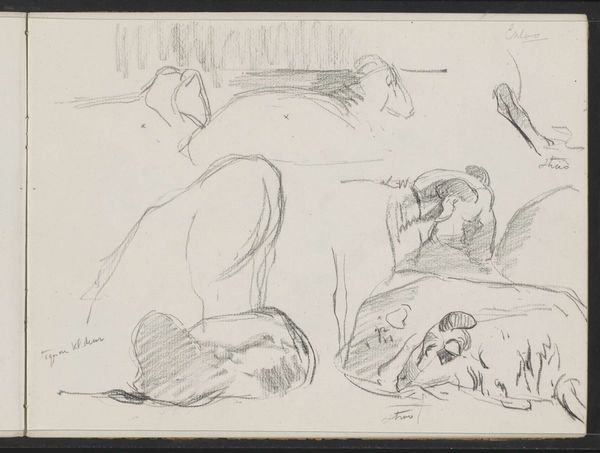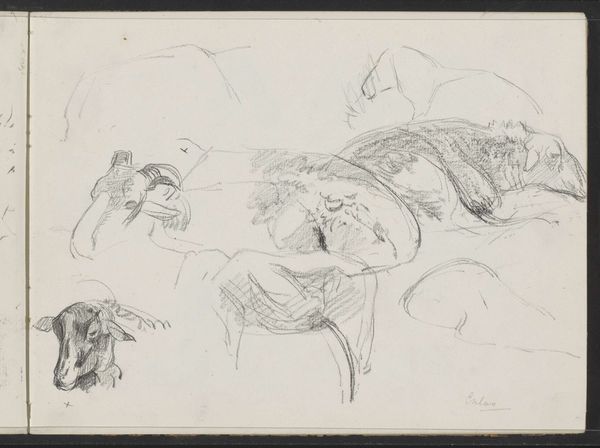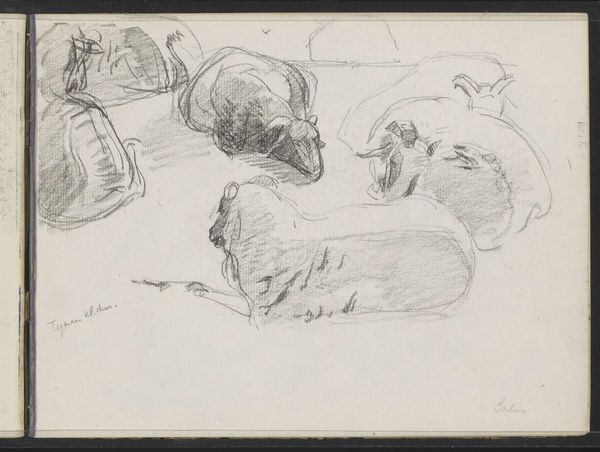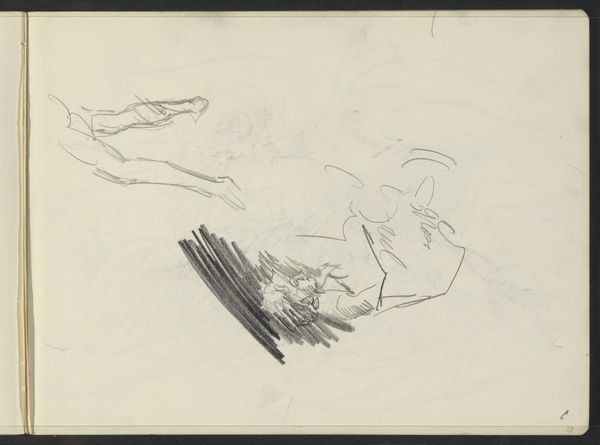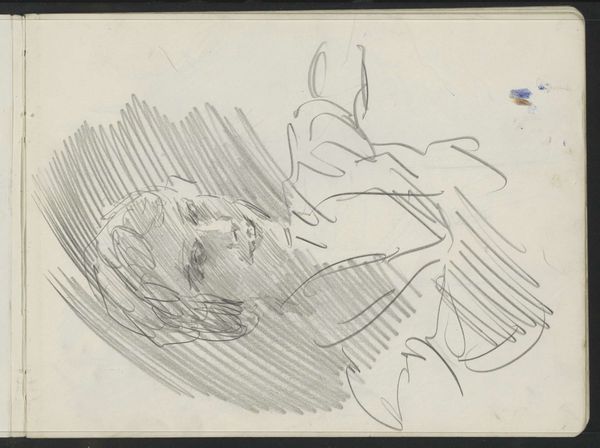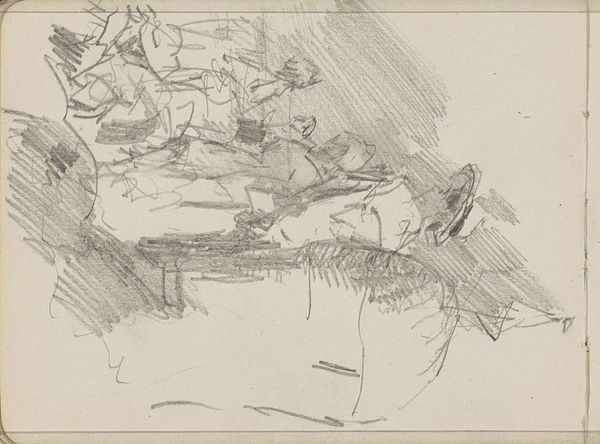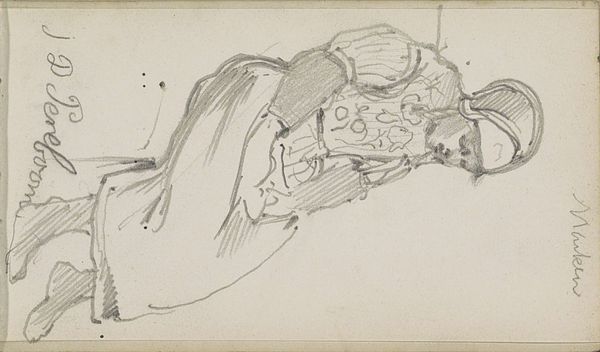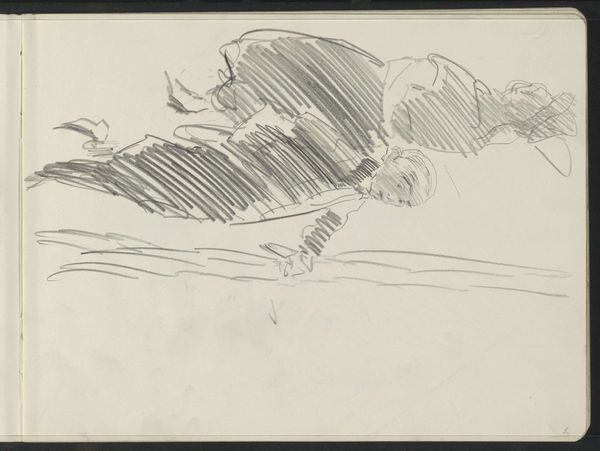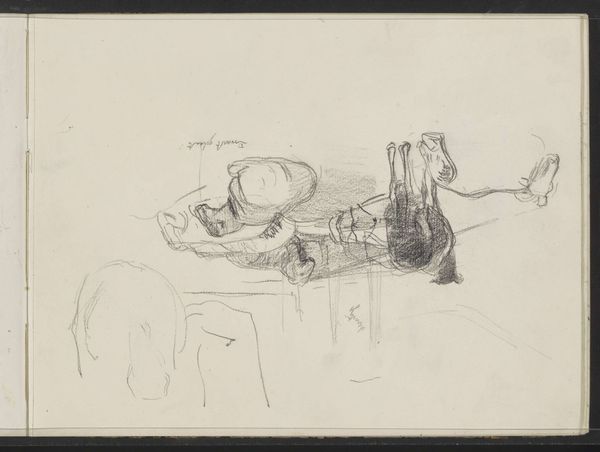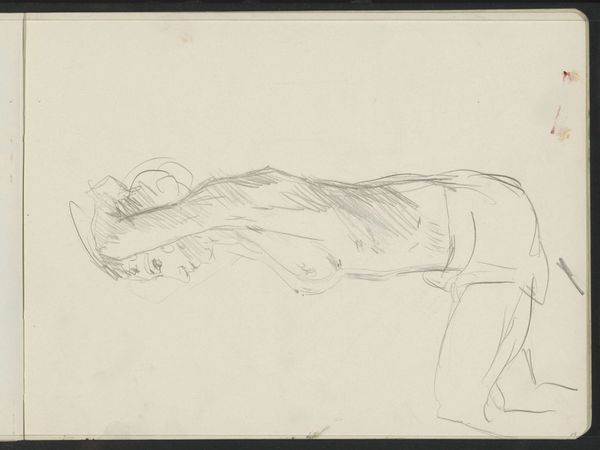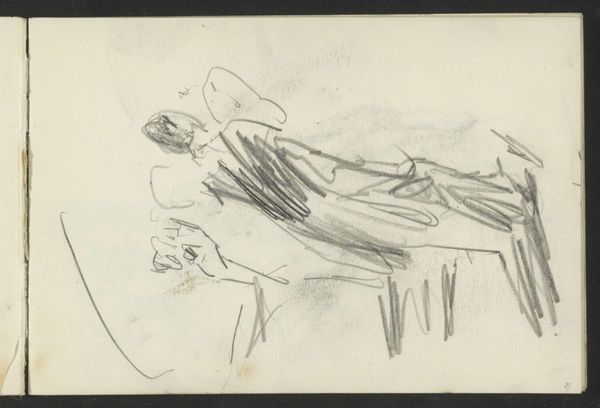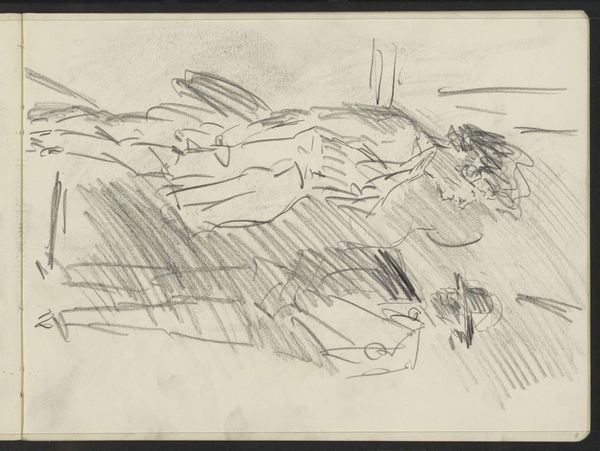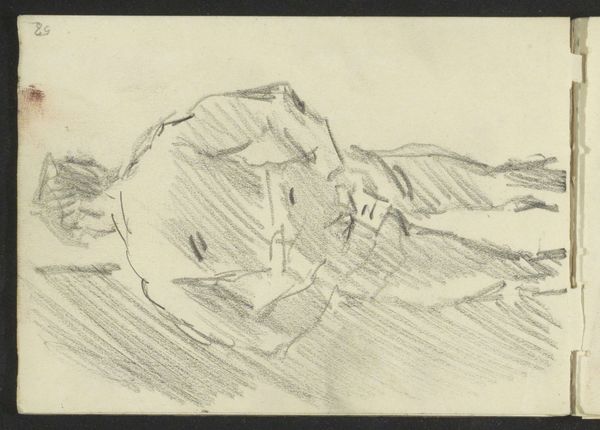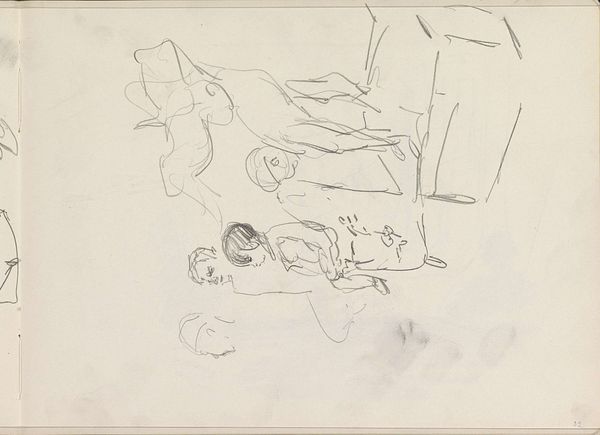
drawing, paper, pencil
#
drawing
#
imaginative character sketch
#
pen sketch
#
landscape
#
paper
#
personal sketchbook
#
idea generation sketch
#
ink drawing experimentation
#
pen-ink sketch
#
pencil
#
sketchbook drawing
#
storyboard and sketchbook work
#
sketchbook art
#
realism
#
initial sketch
Copyright: Rijks Museum: Open Domain
Curator: This is a sketch by Ferdinand Oldewelt, titled "Studieblad met schapen te Exloo," created sometime between 1904 and 1912, using pencil and ink on paper. Editor: It strikes me as incredibly peaceful. The soft lines and muted tones give a real sense of calm. There's also something very immediate and intimate about it, like we're looking at the artist's private thoughts. Curator: Absolutely. Oldewelt's sketches provide crucial insight into his larger artistic project. They're where he works through themes of rural life, reflecting a connection to the land and its people, particularly within the socio-political context of early 20th-century Netherlands and its evolving national identity. Editor: The sheep, as recurring symbols in art, are usually stand-ins for gentleness and piety, or even followers. Do you think there's anything else to read into them in the context of this artwork? Curator: That is a critical point to consider. Oldewelt lived during a period of social and agricultural reform. We could analyze his rendering of these sheep—specifically their vulnerability in these rough pencil lines—as representing a kind of precarious existence, vulnerable to larger systemic changes, reflecting on marginalized agricultural communities. Editor: I can certainly see that tension there. The sketch also reveals a raw honesty, stripping away romantic notions of rural existence. There's almost a melancholic recognition of vulnerability. It avoids glorifying and gives the viewer a glimpse into the mundane, challenging our notions of progress and societal development. Curator: And perhaps also subtly critiquing industrialization and its displacement of traditional ways of life. His careful observations of these animals invites us to consider how economic forces were reshaping rural communities. Editor: This image encourages introspection, moving past sentimentalized images of landscape. In a world where images constantly vie for our attention, its modest beauty, even incompleteness, offers us some breathing space. Curator: Agreed. It speaks to the enduring power of art to make us reflect on who we are, and where we are going as a society.
Comments
No comments
Be the first to comment and join the conversation on the ultimate creative platform.
